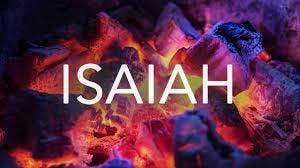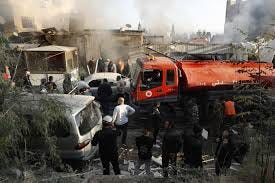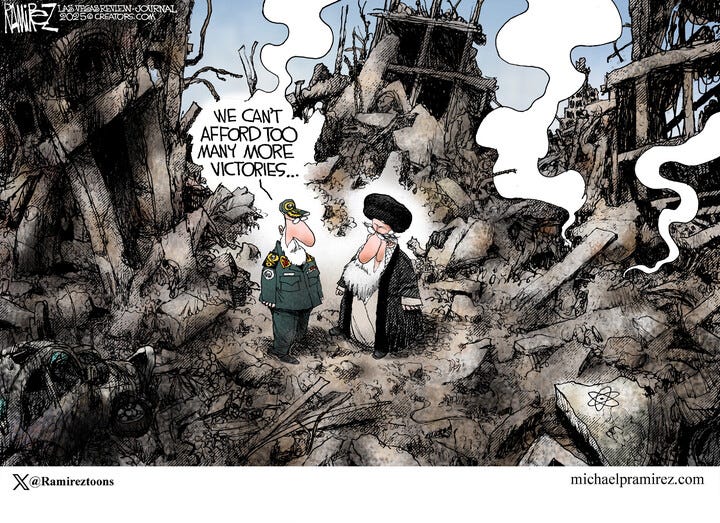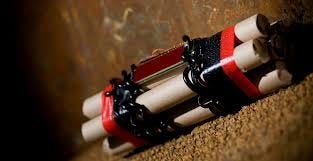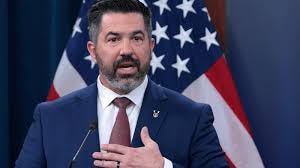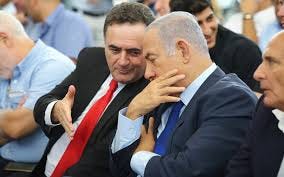Israel Report - Friday 04 July 2025
And I will clothe him with thy robe, and strengthen him with thy girdle, and I will commit thy government into his hand: and he shall be a father to the inhabitants of Jerusalem, and to the house of Judah.
And the key of the house of David will I lay upon his shoulder; so he shall open, and none shall shut; and he shall shut, and none shall open.
And I will fasten him as a nail in a sure place; and he shall be for a glorious throne to his father's house.
[Isaiah 22; vv 21-23]
Fact-Check: Did Settlers ATTACK Israeli Soldiers? The REAL Story……..
IDSF - Israel's Defence and Security Forum
In today’s briefing, former IDF spokesperson and director of the government press office Danny Seaman talks about the Hilltop Youth who have been portrayed in the media as entirely violent and hostile.
He shares the disparity between their portrayal and the facts on the ground and then explains how this issue fits into a broader debate about the status of Judea and Samaria and the future of declaring sovereignty in the region.
HERE is the recording of the briefing from today.
Our next briefing will be Tuesday 08 July 2025
Saudi Defence Minister Secretly Meets with Trump Discusses Iran De-escalation...
Saudi Defence Minister Prince Khalid bin Salman secretly met with President Donald Trump and other key officials in the White House on Thursday.
According to sources, the talks included discussions about de-escalation with Iran and getting to the negotiating table.
The talks were also reportedly about ending the war in Gaza and negotiating the release of the remaining hostages – whether dead or alive – and about working toward peace in the Middle East.
Although the talks were not exclusively about the possibility of normalization with Israel, sources said the conversation dealt with steps that needed to occur to get there.
The Saudis are in the process of finalizing a defence and trade deal with the U.S., and the message shared between the two allies, sources added, is that they see eye-to-eye on all issues.
Really?
HAMAS to Respond “Positively”?
The Saudi newspaper Al-Sharq Al-Awsat reports, citing Hamas sources, that progress is being made toward accepting the ceasefire proposal.
According to the sources, Hamas has begun informing several parties of its intention to respond "positively" to the proposal as early as tonight or early Friday morning.
Hamas in an official statement: “As part of our commitment to stopping the Zionist aggression against our people and ensuring the free entry of aid, the organization is holding consultations with the leaders of Palestinian forces and factions regarding the proposal received from the mediators. We will convey the final decision to the mediators after completing the consultations and will announce it officially.”
Now that’s misguided Chutzpah!
Israeli Raid in Damascus Suburbs…….
An Israeli special forces unit conducted an air raid lasting approximately five hours in the town of Yaafour, located in the suburbs of Damascus, about 10 kilometres from the Syrian capital.
According to reports from Syria, three helicopters landed, and the forces raided a site previously associated with the Syrian Republican Guard of the former regime.
After the operation at the site, the commando force departed the area via the helicopters.
IRAN Update;
US and Israeli strikes on Iranian nuclear facilities have likely degraded Iran's ability to develop a nuclear arsenal.
US and Israeli strikes damaged or destroyed the Fuel Plate Fabrication Plant (FPFP) and Uranium Metal Conversion Plant at the Esfahan Nuclear Technology Centre (ENTC), both of which are used in the final steps of building a nuclear weapon.
These facilities could have supported metallization, which is the process of converting uranium hexafluoride into dense metal for an explosive core.
A nuclear analyst at a Washington, D.C.–based think tank reported on July 2 that US and Israeli strikes on Iran’s uranium metal conversion facilities at the ENTC did not significantly delay Iran’s nuclear timeline.
The analyst stated that Iran could still produce enough uranium metal for a nuclear weapon (25 kilograms) in “weeks, perhaps even days” without these facilities.
The analyst assessed that Iran likely already knows how to produce uranium metal, citing an International Atomic Energy Agency (IAEA) report that stated that Iran produced over 100 kilograms of uranium metal from green salt at a laboratory in Tehran between 1995 and 2002.
If Iran were to pursue a nuclear weapons program, it would likely pursue a nuclear arsenal rather than a single nuclear weapon. A nuclear arsenal would require more than 25 kilograms of uranium metal and significant amounts of highly enriched uranium.
The Institute for Science and International Security previously assessed that US and Israeli airstrikes on Iran’s main enrichment facilities, Fordow and Natanz, “effectively destroyed” Iran’s enrichment program and that it will take a “long time” for Iran to restore its enrichment capabilities to pre-strike levels.
Large enrichment facilities like Fordow and Natanz would likely be necessary for Iran to develop nuclear weapons at scale.
Iran would also need to miniaturize a nuclear warhead to mount it on a ballistic missile.
Iran could attempt to build a simple gun-type nuclear bomb, which is similar to the one the United States dropped on Hiroshima. A gun-type nuclear bomb needs 25 kilograms of 90 percent enriched uranium.
There were reports in February 2025 that a secret Iranian team may have been working on a faster way to build this type of bomb.
US officials said that the design would not fit on a missile and would be less reliable than a modern warhead.
Iran would have to use an aircraft or another crude delivery method with this type of nuclear weapon, Iran would also need the facilities and expertise to build even a simple gun-type bomb.
Israeli killings of Iranian nuclear scientists and US-Israeli strikes on Iranian nuclear facilities likely degraded that capability.
A US weapons expert noted that US and Israeli strikes have “significantly” increased the time required for Iran to “build even a non-missile deliverable weapon,” such as a gun-type nuclear bomb.
Chief Pentagon Spokesperson Sean Parnell [above] stated on July 2 that US strikes on Iranian nuclear facilities delayed Iran's nuclear program by one to two years, citing Department of Defence assessments.
US Special Envoy to the Middle East Steve Witkoff and Iranian Foreign Affairs Minister Abbas Araghchi will meet in Oslo, Norway, next week, according to two unspecified sources.
There has been no indication that the United States has changed its position on zero Iranian uranium enrichment
Iran has similarly retained its position that Iran can enrich uranium on Iranian soil.[
Iran continues to demonstrate its unwillingness to adhere to the Nuclear Non-Proliferation Treaty (NPT) Safeguards Agreement, which requires Iran to allow the International Atomic Energy Agency (IAEA) to monitor Iranian nuclear facilities.
Israel is reportedly drafting a mechanism to prevent Iran from being able to rebuild its nuclear program following the conclusion of the Israel–Iran War, according to Israeli media.
The mechanism is reportedly similar to the US-approved Israeli mechanism for monitoring the ceasefire in Lebanon that allows Israel to conduct preemptive operations against Hezbollah if Hezbollah violates the November 2024 Israel-Hezbollah ceasefire agreement.
Israeli Defence Minister Israel Katz [L above] previously stated that Israel would pursue a “policy of enforcement” to prevent Iran from rebuilding its nuclear capabilities, air defences, and missile production.
Benjamin Netanyahu will reportedly discuss the draft mechanism with Donald Trump next week.
Israeli media added that Israel is conducting “under-the-radar" talks with Russia regarding Iran and Syria, but did not specify what Israel has discussed with Russia
Israel Report




